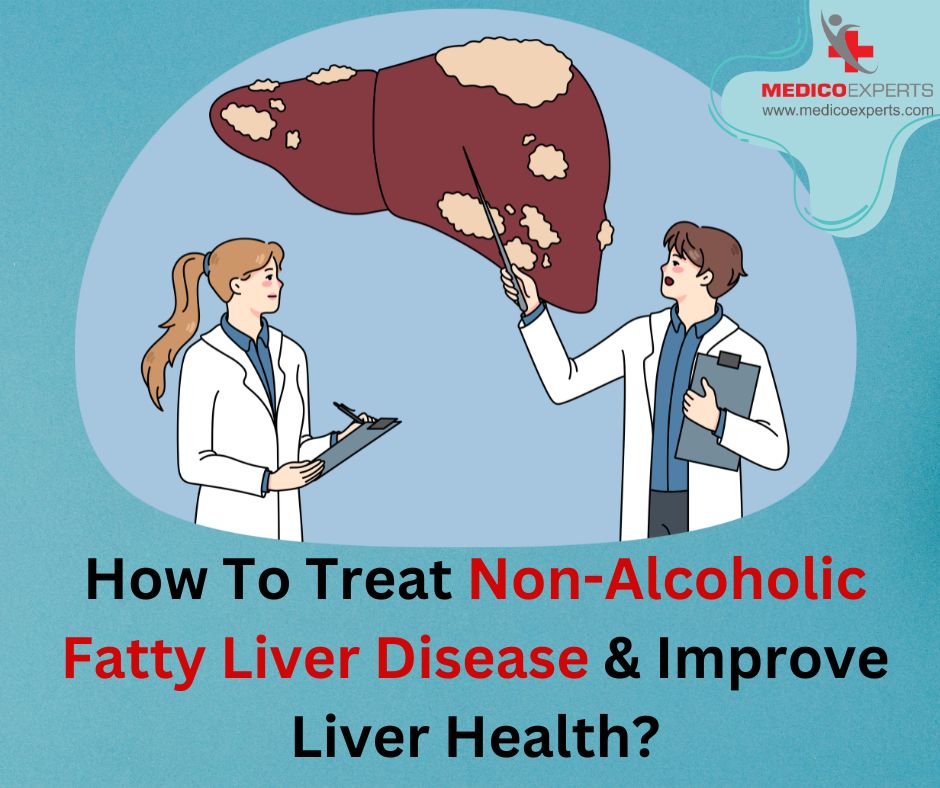Non-alcoholic fatty liver disease (NAFLD) diagnosis may create stress and anxiety in your life. You have likely read a lot on the internet about treating it but there is so much conflicting information that you may feel lost and confused.
You might be thinking whether to focus on a specific treatment, diet, supplement, exercise, or all of them.
So, how to treat non-alcoholic fatty liver disease?
We are here to guide you on treatment options for NAFLD. The right lifestyle changes, supplement, and treatment approach will help you treat NAFLD and boost your overall health. So, let’s learn about them.
Key Takeaways
- Non-alcoholic fatty liver disease (NAFLD) occurs when the liver stores excess fat not caused by alcohol. If not managed properly, it can lead to liver problems.
- NAFLD has 4 stages: basic fatty liver, NASH, fibrosis, and cirrhosis. Early-stage NAFLD may not have symptoms, but if not managed, it can progress to a severe condition.
- Prevention is key: A good diet, regular exercise, weight control, and no alcohol can greatly reduce your risk of NAFLD and stop its progression.
- Lifestyle Changes to Manage NAFLD: Losing weight, eating a balanced diet, being active, managing diabetes, and lowering cholesterol are all necessary for managing NAFLD. It is also important to protect your liver from toxic drugs.
- MedicoExpert’s Liv Clenz: This natural supplement containing Milk Thistle and Turmeric will cleanse the liver, increase energy, and improve digestion. It is a must-have in your liver care regimen.
- Early intervention can reverse or even control the disease, and this sometimes starts with the right supplements, such as Liv Clenz.
- By making the necessary lifestyle changes and taking supplements like MedicoExperts’ Liv Clenz you can take control of your liver health and reduce your risk of severe NAFLD problems.
What is Non-Alcoholic Fatty Liver Disease?
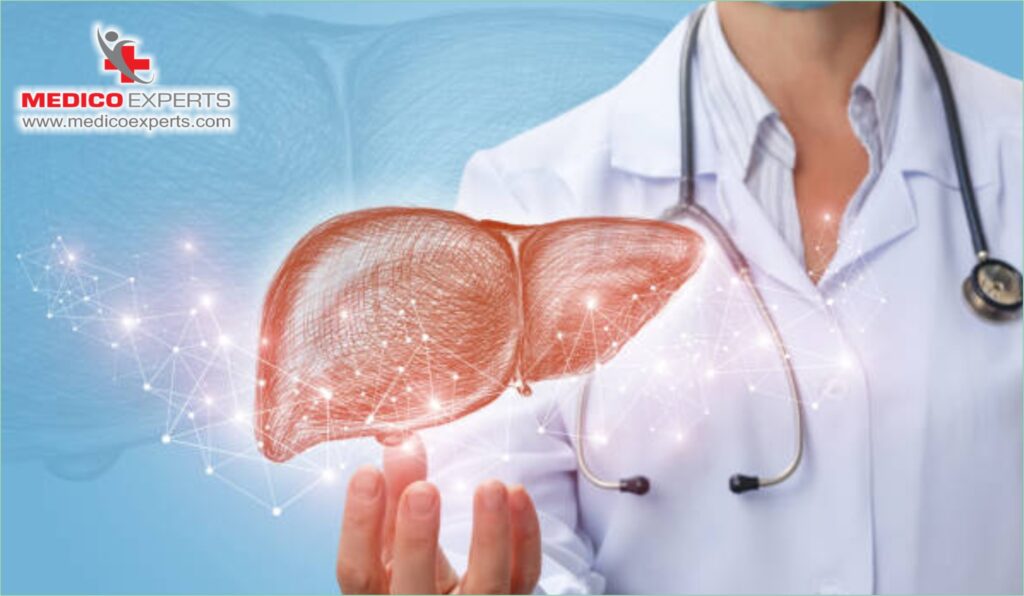
Non-alcoholic fatty liver disease (NAFLD) is a liver condition where too much fat builds up in the liver. NAFLD has nothing to do with alcohol and is common in people who are overweight or obese. NAFLD is now the most common liver disease worldwide, especially in Western and Middle Eastern countries where obesity is on the rise.
In its early stages, NAFLD doesn’t cause any serious health problems. But if it progresses, it can lead to more severe liver problems like non-alcoholic steatohepatitis (NASH). NASH is a more advanced stage where the liver becomes inflamed and damaged, leading to scarring (cirrhosis) and, in rare cases, liver cancer. This kind of liver damage is similar to what happens with heavy alcohol use.
Having NAFLD also increases the risk of other health issues like diabetes, high blood pressure, and kidney disease. If you have diabetes, NAFLD can also increase your risk of heart disease. But the good news is if NAFLD is detected early, managing it with lifestyle changes can reduce fat in your liver and prevent further damage.
What are the Causes and Risk Factors of NAFLD?
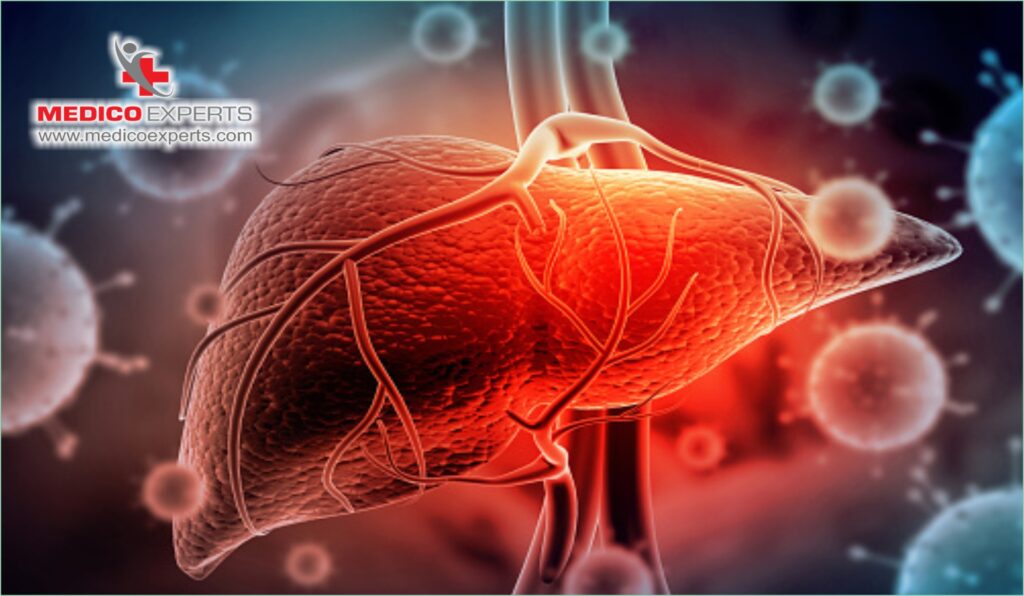
Doctors do not entirely understand why fat builds up in some people’s livers while others are unaffected. They are also unsure why, in some cases, a simple fatty liver progresses into a more severe condition known as NASH (non-alcoholic steatohepatitis, a type of liver inflammation and damage).
However, they have identified certain factors that often increase the chances of developing both NAFLD and NASH. These include:
- Genetics – family history can play a role.
- Being overweight or obese – particularly when excess fat gets stored around your waist.
- Insulin resistance – when your body doesn’t respond well to insulin, which helps control blood sugar.
- Type 2 diabetes – having high blood sugar is a risk factor.
- High blood fats – exceptionally high triglycerides can raise your risk.
While these factors increase the likelihood of developing a fatty liver, some people can get NAFLD even if they don’t have any of these risks.
Other Health Risks Linked to NAFLD
Certain health conditions and lifestyle factors make you more likely to develop NAFLD. If you have any of these, it might be helpful to keep an eye on your liver health:
- Low levels of growth hormone
- High cholesterol or triglycerides in your blood
- Metabolic syndrome (a group of conditions like high blood pressure)
- Polycystic ovary syndrome (PCOS)
- Obstructive sleep apnea (a condition that affects breathing during sleep)
- Underactive thyroid (hypothyroidism) or underactive pituitary gland (hypopituitarism)
Without medical tests, it can be challenging to determine if NAFLD has progressed to NASH. So it’s always best to consult your doctor if you have any of the above signs.
Now that we have understood the primary risk factors for NAFLD let’s examine how doctors identify this disorder.
How is Non-Alcoholic Fatty Liver Disease Diagnosed?
NAFLD often goes unnoticed because, in most cases, it does not cause any symptoms. Many people find out they have it when routine tests, like a yearly blood test, show some exceptional signs.
Blood Tests
Several blood tests can help diagnose NAFLD. Let us see them in detail:
- Liver enzyme and liver function tests to assess liver health.
- Fasting blood sugar and Hemoglobin A1C to check blood sugar control.
- Lipid profile to measure blood fats like cholesterol and triglycerides.
- Iron studies to measure iron levels in your blood.
- Tests for viral hepatitis, like hepatitis A and C, to rule out viral causes.
- Celiac disease screening in case gluten intolerance affects the liver.
- Complete blood count to check overall health.
Imaging Procedures
Imaging tests examine the liver closely. These tests can show if there is fat or scarring in the liver. They are as follows:
- MRI or CT scans: These procedures provide more detailed images. They help to detect mild liver fibrosis, although they cannot distinguish NAFLD from NASH.
- Transient elastography: It is a special ultrasound that measures liver stiffness, which can indicate scarring.
- Abdominal ultrasound: It is often the first imaging test for liver issues.
- Magnetic resonance elastography (MRE): it is a method that combines MRI with sound waves to map liver tissue stiffness.
Liver Biopsy
If other tests suggest advanced liver disease, or if the results are not precise, your doctor might recommend a liver biopsy. A biopsy gives the most accurate information about inflammation, scarring, and how much damage there is.
The procedure involves the removal of a small piece of liver tissue with a needle through the abdomen. While a liver biopsy is very helpful for diagnosis, it can be uncomfortable. Therefore, your doctor will discuss any possible risks with you in detail.
Once you are diagnosed with NAFLD, the next step is to examine what lifestyle changes can help you deal with it and improve it. We will cover this in the next section.
What are the Lifestyle Changes to Manage and Treat NAFLD?
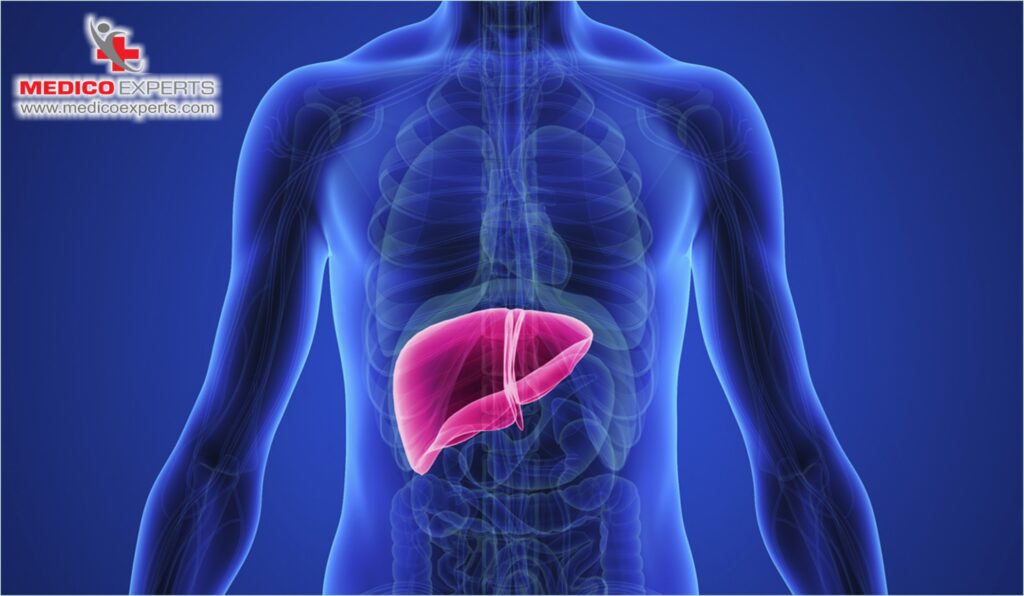
Managing NAFLD starts with a few simple changes. Try these:
- Lose Weight: If you are overweight or obese, losing weight can help. Reducing your daily calories and increasing exercise is vital. If weight loss has been challenging, contact your healthcare team for help and guidance.
- Eat Healthy: Choose a balanced diet with fruits, veggies, and whole grains. Your healthcare team may recommend avoiding processed foods, red meat, sugary drinks, and white bread. Tracking your calories will help you stay on track.
- Exercise: Aim for 150 minutes of exercise a week. More exercise will help you lose weight. Start slow if you’re new to exercise, and talk to your healthcare team for personalized advice.
- Control Your Blood Sugar: If you have diabetes, managing it is crucial. Take your medications and monitor your blood sugar as your healthcare provider advises.
- Control Your Cholesterol and Blood Pressure: This will help your liver and overall health. Eat well, exercise, and take your medications.
- Liver Safe: Avoid alcohol, follow med instructions, and ask your healthcare team before taking herbal supplements. Some supplements can damage your liver, so ask for guidance.
- Consider a Liver Health Supplement: Adding a gentle, liver-supportive supplement can be a valuable part of your routine. MedicoExpert’s Liv Clenz actively detoxifies and supports liver function. With a carefully crafted blend of 11 powerful herbs, including Milk Thistle, bhumi amla, and Turmeric, Liv Clenz detoxifies your liver, enhances digestion, and elevates energy levels. It fits seamlessly into your daily routine.
How to Treat Non-Alcoholic Fatty Liver Disease?
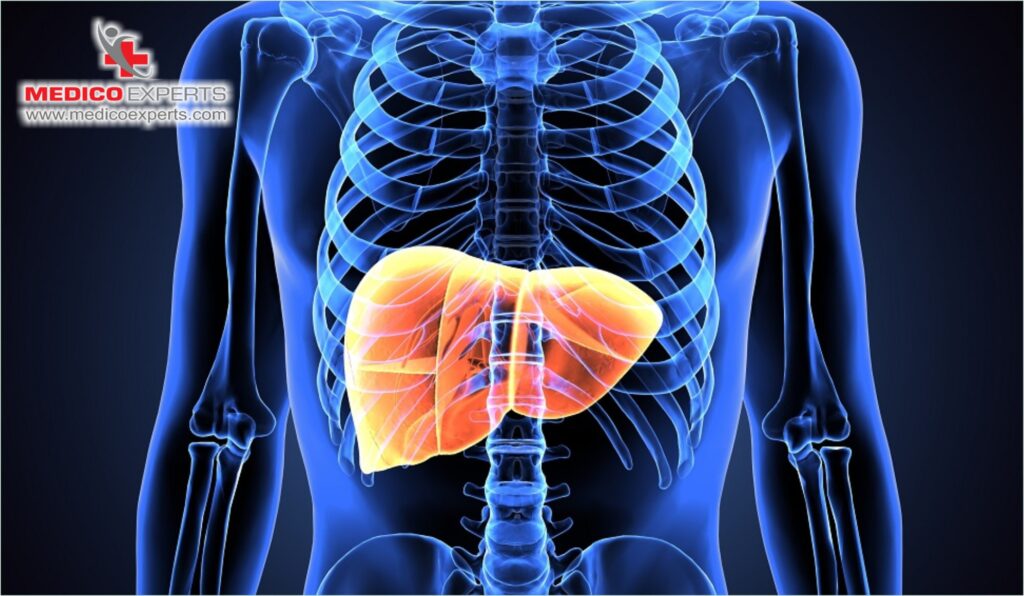
If you have been diagnosed with NAFLD, you might be wondering if there’s a way to treat or even cure it. Let’s dig into a few alternative options researchers are currently studying for their potential benefits.
Alternative Options
While there is no guaranteed cure for this disease, there are some remedies that can help you treat it successfully or at least get some relief from it. Natural approaches may help support liver health and even reduce fat buildup over time. Researchers are exploring a few options, such as:
Vitamin-E
This vitamin, known as an antioxidant, may help protect your liver by reducing damage from inflammation. Studies suggest that vitamin E supplements might help people with NAFLD, mainly those without type 2 diabetes. People with severe liver scarring or diabetes should not use it. In high doses, there may be a small risk of heart disease or prostate cancer.
Coffee
Studies show that coffee may benefit liver health by lowering the chances of liver scarring and reducing the risk of NAFLD. Certain compounds in coffee fight inflammation and may slow the growth of scar tissue. Although, it is best to talk with your healthcare team about whether coffee might be helpful for you.
These options won’t cure NAFLD but could potentially support liver health when used under medical guidance. Always check with your healthcare provider before trying any new supplement or treatment to see what’s best for you.
Avoiding Alcohol
Moderate or heavy alcohol use can cause additional damage and fat accumulation in the liver in people with Non-Alcoholic Fatty Liver Disease (NAFLD). Therefore, it is highly recommended that patients with NAFLD avoid alcohol entirely if possible. Alcohol is a contributing factor that can exacerbate liver conditions, leading to serious health complications. If you find it challenging to refrain from alcohol altogether, it is necessary to minimize intake significantly.
For men, keep alcohol consumption under two drinks per day, and for women, under one drink per day. Committing to this change can improve liver health and prevent further damage, demonstrating a proactive approach to managing NAFLD.
Aerobic Exercise
Aerobic exercise, or cardio, involves activities that engage large muscle groups and can be sustained over time. This exercise challenges the heart and lungs to work harder than they do at rest, ultimately enhancing cardiorespiratory fitness when performed consistently. A significant advantage of regular aerobic exercise is the decreased risk of cardiovascular disease (CVD). This is crucial for the NAFLD/NASH patient group, as 38% are more likely to succumb to CVD than the 9% who die from liver-related causes.
How to Prevent NAFLD Progression to More Severe Stages?
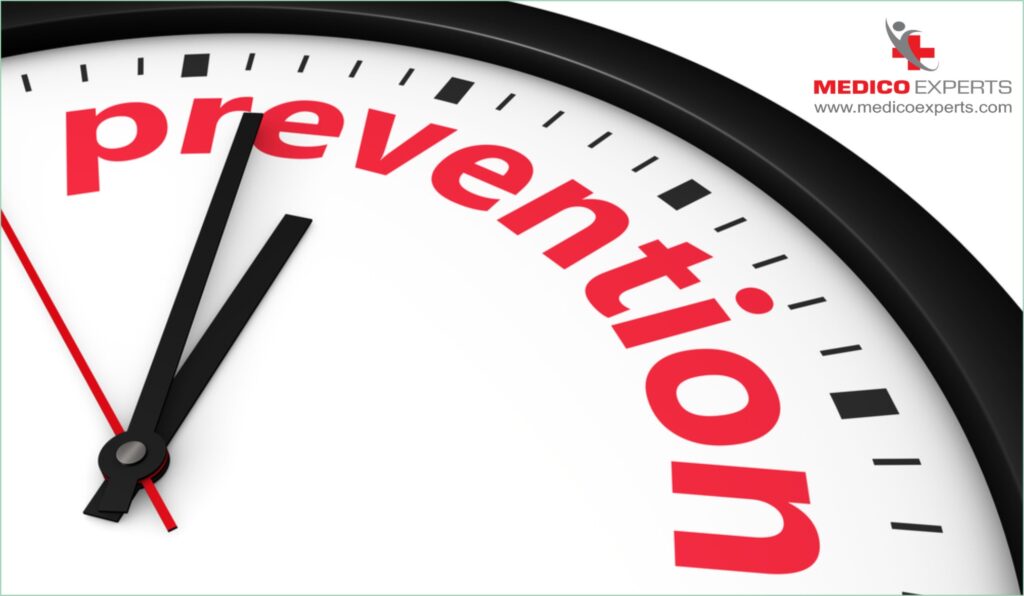
To reduce your chances of NAFLD (Non-Alcoholic Fatty Liver Disease) or slow its progression, it’s essential first to understand the stages and their severity.
- Simple Fatty Liver (Steatosis): This is the earliest stage where fat builds up in liver cells, often found incidentally during other health checks.
- Non-Alcoholic Steatohepatitis (NASH): Here, the liver becomes inflamed; this is a more advanced stage of NAFLD.
- Fibrosis: Inflammation continues, and scars form around the liver and nearby blood vessels. The liver still functions, but there is damage.
- Cirrhosis: In the final stage, cirrhosis occurs after years of inflammation; the liver is scarred, shrunk, and lumpy. This is permanent damage that can lead to liver failure and liver cancer.
NAFLD can take years to progress to fibrosis or cirrhosis, but making lifestyle changes now can help protect your liver and prevent further damage.
If you want to lower your chance of NAFLD (Non-Alcoholic Fatty Liver Disease) or slow its development, follow these easy steps:
- Eat lots of fruits, veggies, whole grains, and healthy fats to ensure a well-balanced diet. These foods are good for your liver and prevent fat buildup.
- Avoid excessive Alcohol and Sugary Foods as consuming alcohol excessively can hurt your liver, so drink as little of it as possible. Also, avoid sugary drinks like soda, juice, and sweet tea. Cutting back on sugar and food portions can help a lot.
- Keep your weight at a healthy level. Work with your healthcare team to lose weight slowly if you’re overweight. NAFLD can be avoided by people who are at a healthy weight and who maintain it with a healthy diet and regular exercise.
- Try to be busy most days of the week. Before you start working out, talk to your doctor or nurse and take it easy at first.
How Can Liv Clenz Treat NAFLD Naturally?
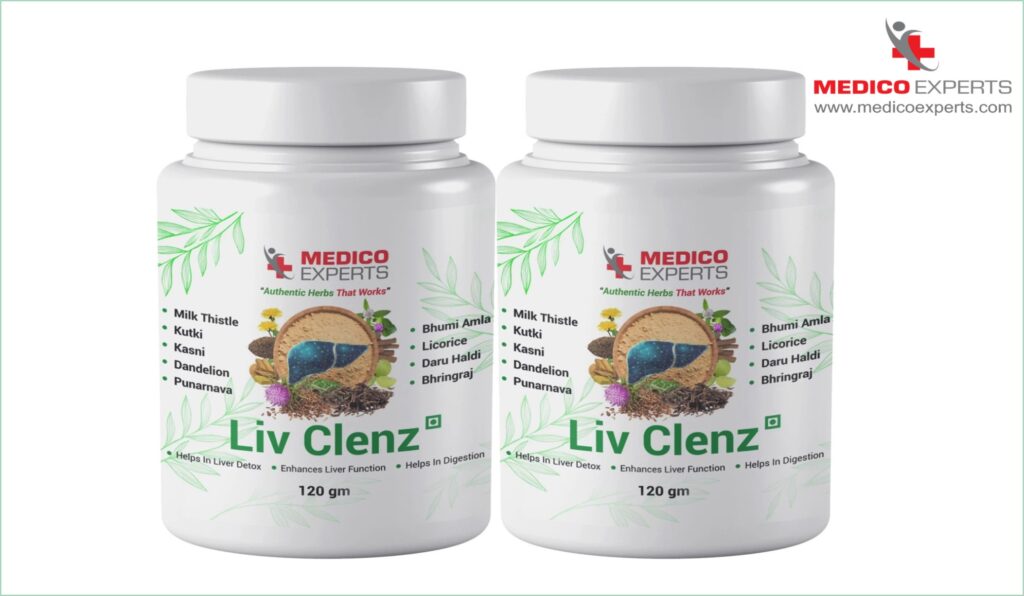
If you are looking for a natural solution to improve liver function as well as enhance your overall health, MedicoExperts Liv Clenz might be the answer. It’s intended to replenish your energy and make you more energetic.
MedicoExperts Liv Clenz detoxifies as well as cleanses your liver by removing accumulated fat and impurities while providing effective results without side effects. It promotes healthy liver and digestive function, providing a natural energy boost that allows you to feel your best. Furthermore, it is easy to include into your routine, limiting the need for additional effort.
Liv Clenz is an all-natural, chemical-free supplement made with 11 potent herbs, including Milk Thistle, Bhumi Amla, and Manjishtha, that provides the advantages of Ayurvedic goodness.
Benefits of Liv Clenz for Liver Health
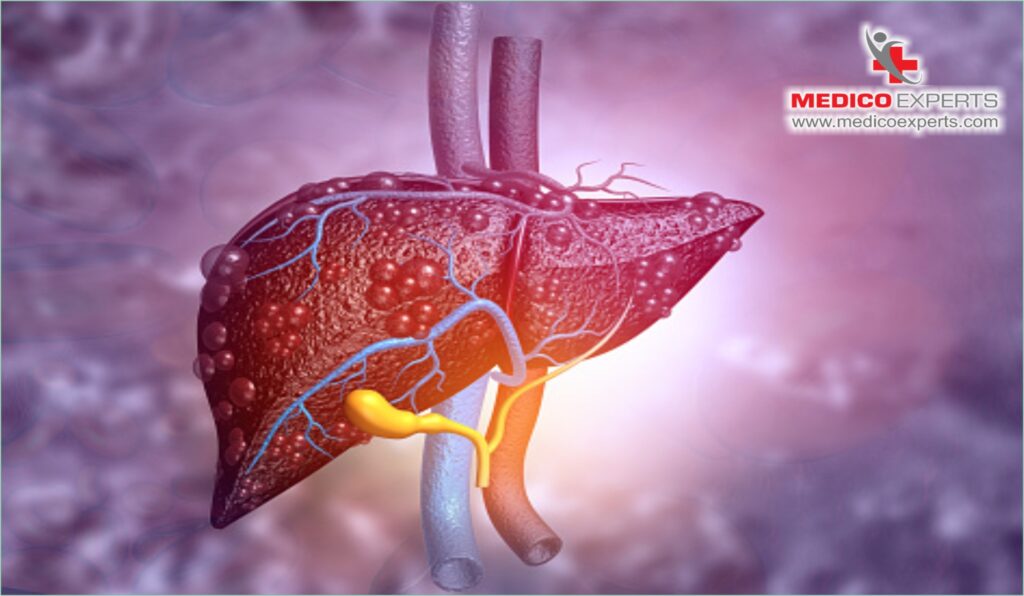
- Supports Liver Functions: Liv Clenz helps to maintain healthy liver functions, liver health, and efficiency.
- Fatty Liver: It helps to address fatty liver issues, improve the liver’s ability to process fat, and reduce fat accumulation.
- Kutki Powder: As mentioned in Charak Samhita, Kutki Powder is known for its detoxifying properties, which help in liver detoxification and protection from external toxins.
- Milk Thistle: Milk Thistle is an excellent herb for liver detox. Many studies have shown it to improve liver function and manage liver issues through detoxification.
- Dandelion Root: It acts as a mild laxative. Dandelions help in digestion and liver function and reduce fat accumulation in the liver.
Regular use will improve digestion, reduce bloating, and reduce the chances of fatty liver advancement. Start your 30-day transformation with Liv Clenz today and see the difference.
Vegan, paraben-free, cruelty-free, and made in India. Noticeable changes in 3 days and significant difference in energy, digestion, and overall health.
So why wait? Start your road to enhanced liver health with MedicoExperts Liv Clenz now!
Takeaway
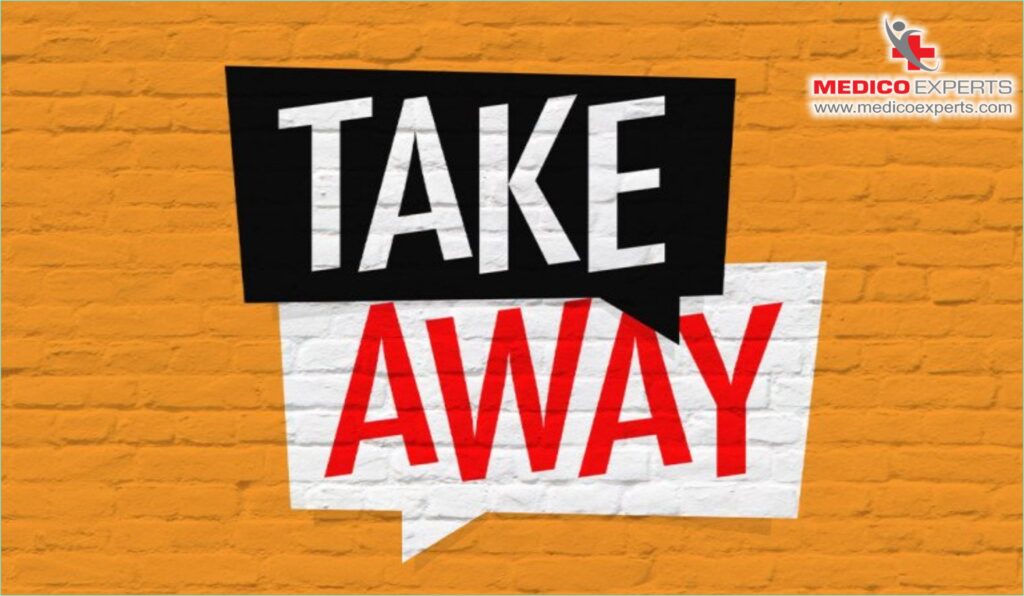
Making some lifestyle and dietary changes can make a difference when managing NAFLD. Losing weight, being active, cutting down on sugar, and eating a healthy, nutrient-dense diet can make a big difference. If you’re a coffee lover, it may help with your symptoms, too!
Suppose you have NAFLD. Team up with your doctor and create a plan that works for you. If you want a natural and chemical-free way to support your liver, try MedicoExperts Liv Clenz; it may just be what your liver needs to stay healthy and energized.
Frequently Asked Questions (FAQs):
Q1. How long does it take for non-alcoholic fatty liver to recover?
A. The recovery period for non-alcoholic fatty liver disease (NAFLD) varies depending on when the problem is identified and what efforts are taken to control it. Suppose identified early and treated with lifestyle modifications. However, more severe phases may take longer and need more intensive care.
Q2. How can I determine whether I have non-alcoholic fatty liver disease?
A. NAFLD is commonly referred to be a silent illness since it does not always present with visible symptoms in its early stages. The most frequent technique to determine whether you have NAFLD is blood tests that measure liver function or imaging testing such as ultrasonography.
Q3. How long does it take to repair a non-alcoholic fatty liver?
A. The healing period for a non-alcoholic fatty liver is determined by the disease’s stage and the methods taken to control it. In the early stages, such as simple fatty liver, lifestyle adjustments might result in recovery within a few months. However, in more severe phases, such as non-alcoholic steatohepatitis (NASH) or fibrosis, it may take longer and necessitate further medical procedures.
Q4. How do you treat non-alcoholic fatty liver grade 1?
A. Grade 1 NAFLD (simple fatty liver) is often modest and can be corrected via lifestyle modifications. Begin by gradually decreasing weight, eating a healthy diet rich in fruits, vegetables, and whole grains, and exercising frequently. Limiting sugar consumption and avoiding alcohol can also assist enhance liver health.
Q5. Can stress exacerbate non-alcoholic fatty liver disease?
A. Absolutely, stress indirectly affects the liver as due to stress, poor dieting, overeating, and not enough physical activity may be chosen. Chronic stress can even make your liver inflamed and not easily recoverable so the management of stress through relaxation techniques, regular exercise, and sufficient sleep is crucial for the well-being of the liver.
Q6. Can supplements aid in the treatment of non-alcoholic fatty liver disease?
A. MedicoExperts Liv Clenz is an excellent choice. It’s a natural supplement formulated with 11 potent herbs, including milk thistle, Bhumi Amla, and turmeric, that work synergistically to cleanse your liver, aid digestion, and raise energy levels.
References
https://www.nhsinform.scot/illnesses-and-conditions/stomach-liver-and-gastrointestinal-tract/non-alcoholic-fatty-liver-disease-nafld/#:~:text=Healthy%20diet%20and%20lifestyle,as%20heart%20attacks%20and%20strokes.
https://www.healthline.com/health/home-remedies-for-fatty-liver#takeway
https://www.betterhealth.vic.gov.au/health/conditionsandtreatments/liver-fatty-liver-disease
https://www.hopkinsmedicine.org/health/conditions-and-diseases/nonalcoholic-fatty-liver-disease
https://www.ncbi.nlm.nih.gov/books/NBK384735
https://www.mayoclinic.org/diseases-conditions/nonalcoholic-fatty-liver-disease/symptoms-causes/syc-20354567#:~:text=The%20liver-,The%20liver,the%20upper%20right%20belly%20area.
https://pmc.ncbi.nlm.nih.gov/articles/PMC6834322
https://diabetesjournals.org/spectrum/article/37/1/39/153914/Practical-Lifestyle-Management-of-Nonalcoholic
https://www.webmd.com/hepatitis/fatty-liver-disease-diet
https://www.nature.com/articles/s41598-024-52482-w
https://www.oaepublish.com/articles/2394-5079.2020.63
https://www.uofmhealth.org/conditions-treatments/digestive-and-liver-health/fatty-liver-disease-non-alcoholic#:~:text=Moderate%20or%20heavy%20alcohol%20use,drink%20per%20day%20for%20women).
https://www.niddk.nih.gov/health-information/liver-disease/nafld-nash/eating-diet-nutrition
Relevant Articles For You
Are you concerned about your liver health which most of the time remains unnoticed? Your concerns are very…..Read More
Your liver is a vital organ responsible for filtering toxins from your body, and supporting its function with the right foods is…..Read More
Ayurvedic medicine may offer potential benefits for fatty liver. Some studies suggest that Ayurvedic interventions, including…..Read More
Recommendations To Understand Different Treatments
Ayurvedic medicine may offer potential benefits for fatty liver. Some studies suggest that Ayurvedic interventions, including…..Read More
Liver cancer begins with the cells of the Liver. Many types of cancer can form in the Liver. Amongst Liver cancers, the most…..Read More
Medically Reviewed By MedicoExperts Editorial & Clinical Review Board On 21 November 2024


